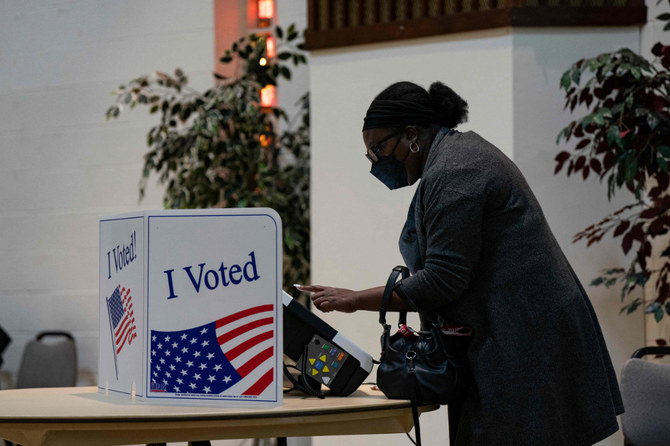
We’re still waiting to see what’s going to happen to the TikTok deal — at the moment, the ball’s in Beijing’s court — but as China ponders, I’d like to offer three reasons that the whole contretemps may be less serious than it appears:
1. The US isn’t exactly the superstar of data protection. The reason there’s a controversy over TikTok at all is because of fears by national security experts that ByteDance, the Chinese company that owns the wildly popular video-sharing platform, might be compelled to turn over user data to the Chinese government. Hence President Donald Trump’s determination to force ByteDance to sell the US operations of the app to a US company.
Should the new agreement be approved, a new company, TikTok Global, would run operations in the US. Although ByteDance would retain an 80% stake (with the rest split between Oracle and Walmart), user data would be hosted by Oracle’s cloud services and, in theory, be unavailable to the Chinese parent company.
In other words, we reduce the risk by keeping the data on American shores.
Well, let’s think about that for a minute. Grant for the sake of argument that the existing ownership structure of TikTok does indeed risk the transfer of private data to the hands of the Beijing regime. The notion that the deal under review will prevent this by keeping the data resident in a particular physical place, although it might play well politically, seems a little ... naive. Tech companies don’t locate their server farms according to national borders. That a company is headquartered in the US doesn’t mean that the data storage is physically in any particular country — or that hackers from other countries couldn’t get at it.
But put that aside. Just about every US tech company, no matter how careful, has faced bad publicity due to mishandled data. I have nothing against Oracle, but for the sake of fairness, one is forced to note that, like the rest, it’s had its lapses. Lots of privacy experts take the view that once personal information is sent into the digital world, privacy is gone.
Granted, there’s a world of difference between a firm that does its best to preserve private information but sometimes errs, and one that shares the information freely with government agencies. But even the US government usually find a way to access data it really wants. Often this is via secret warrants — warrants of whose existence the user is never aware. (Tech firms have accused the government of overusing secret warrants.) Sometimes, companies willingly share information with law enforcement agencies, even in the absence of probable cause. Sometimes government agencies simply purchase user data from commercial vendors. And with successive administrations asking tech companies to build backdoors into their services, the situation isn’t going to get better.
This isn’t to equate Washington and Beijing. But in our imperfect world, even the good guys need watching. In part because ...
2. I’m not saying the TikTok fight is just geopolitics in disguise, but if it is, it’s not going to work.
Disapproval of China among Americans is at an all-time high. In particular, there’s been a sharp upturn in negative views since last year. Much of this is due to the way Beijing bungled its handling of the pandemic in its early stages, but that’s not the only reason: Disapproval has been high for a while. All of which is to say that this is a tempting moment for politicians of both parties to stage Cold War-style antics directed at the Communist regime. Democratic nominee Joe Biden has called TikTok “a matter of genuine concern,” about as close as he can come to saying he agrees with Trump, and observers expect a Biden administration would continue efforts to rein in the app.
But the effort to build a firewall around China won’t work.
For one thing, young Americans disapprove of China a lot less than their elders do. Although I haven’t found data on views of the particular young Americans who are obsessed with TikTok, common sense suggests they’re less negative still. This matters, because TikTok users don’t only trend young — they trend extremely young. In the US, nearly two-thirds of regular users are between 10 and 24 years old. Some 30% are teenagers. I suspect that most of these young people find the battle over ByteDance bewildering.
Which leads us to ...
3. TikTok is the obsession of the moment, but there will be lots of other moments.
Since its 2017 release, TikTok has taken the world by storm. Early in 2019, the video sharing app became the most widely downloaded app in the world, measured by downloads from app stores. Okay, that’s impressive. But I’m old enough to remember 2006, when MySpace was the biggest website in the US. That same year, Facebook’s announcement that people other than students would be allowed onto its site was greeted with a yawn — along with a warning that the decision could wreck the still-fragile social network.
I’m not predicting the end of any particular site. I’m just saying that the rule of creative destruction holds online just as it does everywhere else. This is particularly true in a world where many people are constantly looking for the next big thing.
And plenty of competitors are waiting in the wings. One candidate is Byte, launched in January by Dom Hofmann, best known for bringing us the (alas!) now-defunct Vine, the platform that popularized video sharing, later killed by its corporate masters at Twitter. (Requiescat in pace.) Byte limits videos to six seconds, but, unlike TikTok, focuses on helping popular users monetize their success.
Then there’s Triller, which is backed by a who’s who of music industry stars. Since the administration began its campaign against TikTok, Triller downloads have exploded. TikTok’s most popular “creator,” who has an astonishing 87 million followers, has already jumped to the rival platform. (In August, Trump joined Triller too.)
Okay, these happen to be American companies. But they don’t have to be. There’s entrepreneurial talent everywhere, meaning that the next big thing can come from anywhere ... including the nation’s adversaries. Maybe in politics that’s a bug. But for those who believe in free markets and free people, it’s a feature.
Bloomberg












